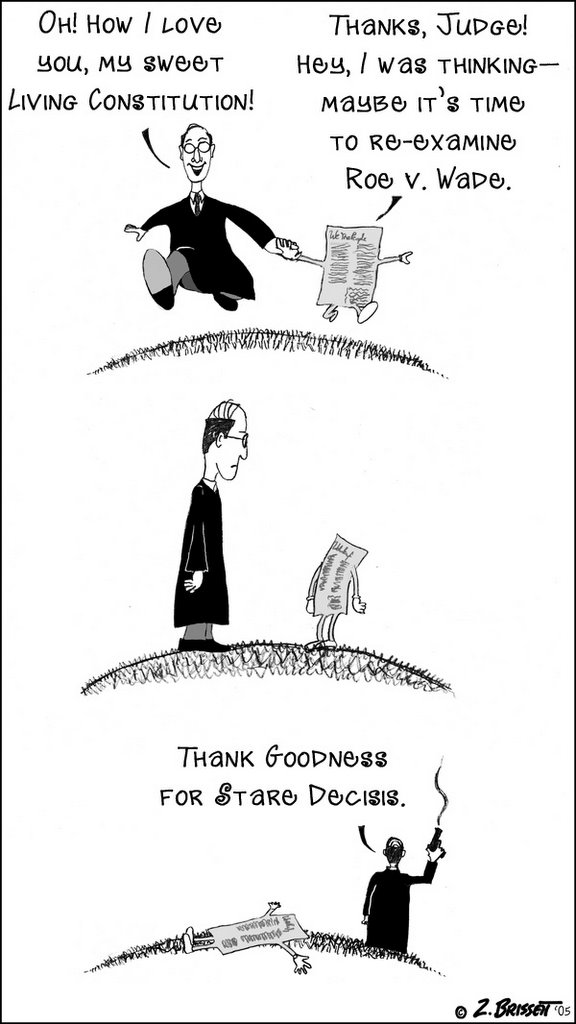Why Stare Decisis Has Suddenly Become So Important To Liberals
The Weekly Standard explains the left's new-found affinity for stare decisis:
THE HEARINGS on John Roberts's and Sam Alito's nominations to the Supreme Court featured a Latin phrase most people hear only in connection with Supreme Court confirmations: stare decisis. Stare decisis is the legal doctrine holding that in general, an issue once decided should stay decided, and not be revisited.My Comments:
***
Nowadays, it is liberals, not conservatives, who talk about stare decisis in committee hearings, generally in the context of abortion. Oddly, though, it's also liberals who want nominees to agree that the Constitution is a "living document."
***
How is it that liberals have become, simultaneously, the champions of both fidelity to precedent and an ever-changing Constitution?
Part of the answer, of course, is that the left's commitment to stare decisis is selective. Many of the Supreme Court's iconic liberal decisions overruled prior case law. Brown v. Board of Education (1954), overturned Plessy v. Ferguson (1896); Gideon v. Wainwright (1963), which established the constitutional right to a free public defender in felony cases, overruled Betts v. Brady (1942); Mapp v. Ohio (1961), which applied the exclusionary rule to state court prosecutions, overruled Wolf v. Colorado (1949); and so on. Nor need we reach far back into history for such instances. Just two years ago, in Lawrence v. Texas (2003), the Court found a constitutional right to perform acts of homosexual sodomy, thereby overturning Bowers v. Hardwick, which itself was no historical relic, having been decided in 1986. Yet none of the liberals who now wax eloquent about stare decisis criticized Lawrence's violation of that principle.
***
When liberals talk about a "living Constitution," what they really mean is a leftward-marching Constitution. Liberals - especially those of an age to be senators - have spent most of their lives secure in the conviction that history was moving their way. History meant progress, and progress meant progressive politics. In judicial terms, that implied a one-way ratchet: "conservative" precedents can and should be overturned, while decisions that embody liberal principles are sacrosanct. To liberals, that probably seemed more like inevitability than inconsistency.
***
If we draw back from the buffoonery the Senate Democrats sometimes exhibited last week, we can see a more poignant scene: an old guard trying, with more resignation than hope, to hold on to its last redoubt.
As Feddie would say, Stare Decisis is fo suckas! You can purchase some related items from Zach's Store:





0 Comments:
Post a Comment
<< Home